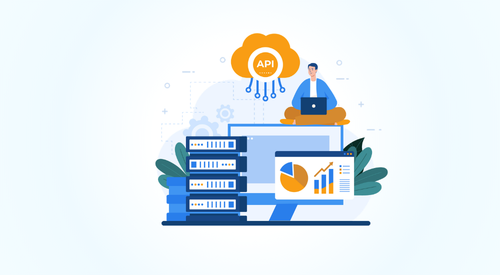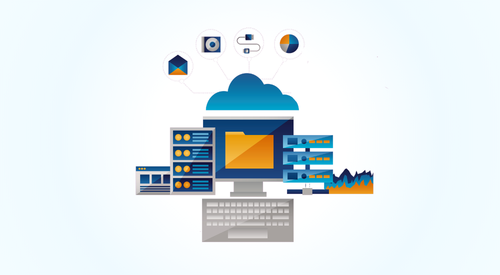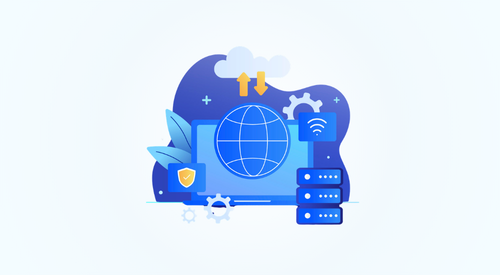

Infrastructure as Code (IaC) is now a foundational principle in contemporary IT infrastructure, providing a way of achieving and operating IT infrastructure. This approach differs from the conventional hardware setup through a manual process which enhances effectiveness, accuracy, and scalability of the operations. Thus, IaC is very important in Singapore where cloud solutions and digitalization progress steadily to prevent companies from losing positions in a digital economy. In this blog, we will explore how it is shaping Infrastructure as Code (IaC) in Singapore. We will delve into the advancements in IaC tools and technologies, the growing importance of automation, and the challenges and opportunities that lie ahead.
Optimize Your Cloud Operations: Get in Touch with Niveus Solutions
Understanding of Infrastructure as Code (IaC)
Infrastructure as Code is the practice of describing computing infrastructure and its parameters in the form of code, rather than in human language. This code can be used to describe aspects such as network, virtual machine, load balance, and connection topology. The software infrastructure approach allows organizations to set IT resources and infrastructure up through code, thereby removing human variability to enhance consistency across the environments.
The Benefits Of Embracing IaC
The adoption of IaC has a number of benefits to organizations. First of all, it helps to maintain conformity with other environments because the same configurations can be run through again and again with no variations. Second, there is increased efficiency from the fact that IaC eliminates repetitive work that could otherwise bog down IT departments. Thirdly, it provides flexibility, where organizations can easily expand or reduce the input they add to their infrastructure. Lastly, there is the matter of versioning, which comes in handy when teams want to revert to previous configuration.
IaC in the Context of Cloud Environments
In cloud environments, IaC is particularly valuable as it automates the whole process of infrastructure provisioning. Cloud infrastructure can be complex as it consists of a number of services and instances that require management and synchronization. IaC offers the ability to manage these resources in an automated fashion which greatly helps in deploying and managing them in the most effective manner. It also allows organizations to take full advantage of cloud-native features such as Auto-Scaling and Load Balancing since they can be integrated into the structure’s code.
Infrastructure as Code (IaC) in Singapore
As for the use of IaC, Singapore has also been an active player in technology trends as one of the most advanced nations. This section discusses the relevance of IaC in the context of the landscape of technology adoption in Singapore.
IaC for Cloud Environments Singapore
Singapore has focused on the digitalization of various industries and this has boosted the uptake of cloud solutions across the markets. While companies switch to cloud, the task of managing these environments has become more challenging. The challenge of creating a scale and secure cloud can be met thanks to IaC, which automates the creation of cloud architecture and its management. Singapore is a country where financial performance entails considerable focus on innovation and efficiency hence the need for strong IT capabilities.
Key Variables to Take into Consideration When Deploying IaC in Singapore
To avoid undesirable results, it is critical to plan and execute IaC in the right way and get the intended benefits. The following crosscuts the core considerations that organizations in Singapore should bear in mind when implementing IaC.
Choosing Appropriate IaC Tools and Services
The best tools and services are among the primary aspects for consideration when planning and executing IaC. Selecting tools that are compatible with the infrastructure needed in an organization and with this current tools system in place is crucial. For instance, a business with a multi-cloud approach prefers Terraform due to its cross-cloud solutions, whereas a firm involved in configuration management will use Ansible.
Besides, the availability of services and supports should also govern the selection of the tools to be utilized by the organizations. It is always helpful to engage with a provider who can provide IaC consulting in Singapore to facilitate the implementation process and to assist the teams to get up to speed with the new paradigms.
Exploring the Security and Compliance Concerns
Security and compliance are two massive concerns when it comes to IaC, especially for sectors like finance and healthcare. Any IaC work done in organizations located in Singapore should be in line with laws like the Personal Data Protection Act (PDPA).
Some measures that may be taken to enhance security encryption of sensitive data, using proper access control, and reviewing the IaC scripts periodically. Furthermore, compliance with regulations can be attained through checks and validations embedded into the IaC script where infrastructure provisioning and configurations are conducted to adhere to policies.
Readiness and skills training
Successful IaC implementation is not only in the tools and processes but also in the preparedness of the team. It is important for organizations to incorporate training and skills enhancement to create capable teams that can handle IaC tools in the corporate environment.
This involves offering the appreciation training on the particular tool in use, alongside other familiarization sessions on IaC as a concept and approach. IaC also requires continuous learning because it is a relatively young field, and there are new tools and best practices being introduced frequently.
Ease of Integration with Existing Infrastructure
To implement IaC to an already developed infrastructure, especially for an organization, the task is a little bit demanding. There should be a way of implementing the new code-based approach in such a manner that it will not interfere with the systems already in place.
This may entail initially deploying it in a gradual and incremental way for some parts of the infrastructure or for some workloads before using IaC for all systems. However, to optimize the integration process and achieve the full potential of IaC, it is necessary to plan and conduct tests carefully.
Niveus Solutions: Your Partner for Infrastructure as Code (IaC) in Singapore
Every organization is different and has their own specific needs, and Niveus Solutions offers custom services for IaC consulting that is specialized for the client. Strategy formulation together with the execution assistance is also one of the core offered services by Niveus Solutions to enable Singapore organizations to embrace IaC appropriately.
Ensuring Fast Cloud Infrastructure Automation Singapore
We also focus on some of the other services such as Cloud Infrastructure Automation, where we assist clients on how to make their cloud operations efficient by adopting IaC. Niveus Solutions assists various organizations in achieving higher efficiency, scalability, and more cost-optimization in cloud resources’ provisioning and management while sparing time and effort on it.
Infrastructure as Code in the Context of Singapore’s Future
The future of IaC in Singapore, further developments and more opportunities are expected to take place in the near future thanks to advanced technologies, and continuous growth of the demand for automation. This section looks into the future and identifies how the future will look like in relation to IaC in Singapore.
IaC Tools and Services Singapore
The landscape of IaC tools and technologies is rapidly advancing, with new features and capabilities emerging to meet the growing demands of modern infrastructure management. Future advancements are likely to include more integrated and sophisticated automation features, enhanced support for multi-cloud environments, and improved capabilities for managing complex infrastructure setups.
One significant trend is the development of IaC tools that offer better integration with container orchestration platforms, such as Kubernetes. These tools will enable more seamless management of containerized applications and microservices, enhancing the agility and scalability of cloud environments.
Another area of advancement is the integration of artificial intelligence (AI) and machine learning (ML) with IaC tools. AI-powered IaC solutions will be able to predict and automate infrastructure changes based on usage patterns and performance metrics, further improving efficiency and reducing manual intervention.
As these advancements unfold, organizations in Singapore will need to stay informed and adapt to new technologies to maintain a competitive edge in their infrastructure management practices.
The Growing Importance of Automation
Automation is becoming increasingly critical in managing complex IT environments, and IaC is at the forefront of this trend. The ability to automate infrastructure provisioning, configuration, and management allows organizations to handle larger and more intricate environments with greater ease.
The growing complexity of IT infrastructure, driven by factors such as cloud adoption, hybrid environments, and the rise of microservices, makes manual management impractical. Automation through IaC provides a scalable solution to these challenges, enabling organizations to deploy and manage infrastructure efficiently and with minimal human intervention.
In Singapore, where the tech landscape is characterized by rapid innovation and high demand for digital services, automation will be key to maintaining operational efficiency and supporting growth. Organizations that leverage IaC to automate their infrastructure management will be better positioned to respond to changing business needs and market conditions.
Challenges and Opportunities Ahead
While IaC offers numerous benefits, organizations in Singapore may face several challenges as they continue to adopt and evolve their IaC practices. One potential challenge is the need for skilled personnel who are proficient in IaC tools and best practices. As IaC technology evolves, continuous training and skill development will be essential to keep pace with new developments.
Another challenge is ensuring security and compliance in IaC implementations. As organizations automate more aspects of their infrastructure, they must remain vigilant about security vulnerabilities and compliance with regulatory requirements. Implementing robust security practices and regular audits will be crucial to mitigating risks.
Despite these challenges, there are significant opportunities for organizations that successfully navigate the IaC landscape. By adopting IaC, organizations can achieve greater efficiency, scalability, and agility in their infrastructure management. Additionally, the ability to quickly adapt to new technologies and market demands will provide a competitive advantage in Singapore’s dynamic tech environment.
Conclusion
Infrastructure as Code (IaC) is set to play a pivotal role in the future of infrastructure management in Singapore. As the technology landscape continues to evolve, the advancements in IaC tools, the growing importance of automation, and the challenges and opportunities associated with IaC will shape how organizations manage their infrastructure.
By leveraging IaC, organizations in Singapore can achieve greater efficiency, consistency, and scalability in their infrastructure management practices. Niveus Solutions stands ready to support organizations in their IaC journey, offering expertise in IaC tools and services, tailored consulting, and cloud infrastructure automation Singapore. As businesses navigate the complexities of IaC, partnering with a trusted provider like Niveus Solutions can help ensure a successful implementation and a competitive edge in Singapore’s rapidly evolving tech landscape.











